Seeing the impacts of cleft palate on children and families leads dentist to pursue orofacial research
November 22, 2022
Graduate and Postdoctoral Studies profiles PhD student Isra Ibrahim
During her general practice residency at Khartoum Dental Teaching Hospital, Isra Ibrahim, a doctoral student from Sudan, saw the negative effects of poorly managed orofacial clefts on children and their families. Now at UBC, she is pursuing a doctoral degree with Dr. Joy Richman (Faculty of Dentistry).
In a recent Isra's story she wrote for a Graduate and Postdoctoral Studies Profile, Isra discussed how her thesis topic, the role of small Rho GTPases in normal and abnormal lip fusion, came to become her life's work. Below is a transcription.
Why did you decide to pursue a graduate degree?
I was first exposed to patients with orofacial clefts during my general practice residency at Khartoum Dental Teaching Hospital in my home country Sudan. I learned how the management of cleft lip/palate negatively affects children and their families. It is at that time that I got interested in studying these anomalies and was involved in a number of clinical studies related to orofacial clefting. However, I wanted to learn more about the biology and genetics of clefting. I was excited when Dr. Kathy Svoboda at Texas A&M college of dentistry accepted me as a master’s student. Her lab focuses on understanding the development of the palate (roof of mouth). This was a great opportunity to further advance my knowledge in the science of craniofacial development. After completion of my Oral Biology masters degree and a period of maternal leave I decided to pursue my PhD. I was thrilled to be accepted at the Craniofacial science program and to work under the supervision of Dr Joy Richman. My project aims to better understand lip development and the molecular mechanisms underlying the factors that increase the risk of orofacial clefting.
Why did you decide to study at UBC?
My decision to join UBC was mainly because I found a wonderful supervisor with a project that is very interesting. This also of course comes with the great plus of living in beautiful BC.
What is it specifically, that your program offers, that attracted you?
UBC Dentistry has a great record of research on craniofacial development. This position provides a great opportunity to attain my career goals of advancing my research on clefting as well as to train for an academic career in a dental faculty.
What was the best surprise about UBC or life in Vancouver?
The mountains, the ocean, the greenery…. Its a great a bless to be surrounded with amazing nature.
What aspects of your life or career before now have best prepared you for your UBC graduate program?
Many aspects of my life have shaped who I am today, my faith and family playing the major part. Also, as a member of a visible minority and a student parent, I learned to handle stress, balancing my personal and professional life. My diverse background (childhood in Kuwait, adulthood in Sudan, immigration to the US and Canada, raising a family) gave me broad-mindedness and the flexibility to adjust to new circumstances.
What do you like to do for fun or relaxation?
Nature walks, reading books and spending quality time with my family.
What advice do you have for new graduate students?
Balance your life and do not stress out. Accept that difficulties are part of graduate school and life. To mums who are thinking of returning to school it's never too late to start graduate studies at the time that works best for you and family.
Learn more about Isra's research
Isolated Cleft lip and palate (NSCL/P) are among the most common congenital birth defects. These defects, that manifest as openings in the upper lip and/or the roof of the mouth (palate), occur in 1 in every 700 live births on average in Canada. The treatment of clefts involves a series of surgeries starting in infancy and carrying on until adulthood. Expensive and complex dental care is needed to restore function and esthetics. NSCL/P is caused by variations in many genes combined with environmental factors, such as maternal smoking and alcohol consumption. However, there is a poor understanding of the environmental factors that impact facial development in the embryo. My project focuses on understanding the mechanism how these factors impact lip development. I am using time lapse imaging and gene transfer techniques to study signaling pathways involved in lip development as well as human genes associated with increased risk of clefting. These studies will more closely model the complex situation in human lip fusion and will provide new insights into which pathways can be targeted with drugs in the future. The results of our studies will improve our understanding of facial development and will aid in the improvement of prevention strategies that will reduce the burden of care experienced by individuals born with a cleft.
This story originally appeared on the GPS website.
Latest News
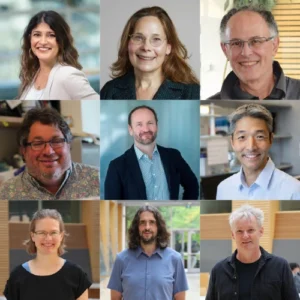
LSI researchers awarded funding in Spring 2025 CIHR project grant competition
July 21, 2025

Jayachandran Kizhakkedathu awarded New Frontiers in Research Fund – Exploration Grant
July 14, 2025

LSI researchers awarded funding through NSERC grants
July 11, 2025
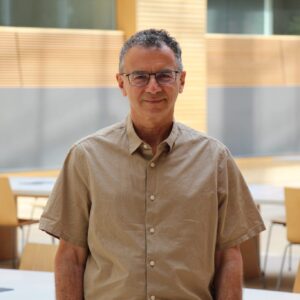
Dr. Ivan Robert Nabi awarded Distinguished Achievement award by the UBC Faculty of Medicine
June 24, 2025
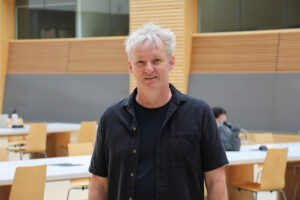
Dr. Douglas Allan Receives Co-Funded Grant from Alzheimer Society and Brain Canada
June 20, 2025

LSI Researchers Receive National Recognition for Stem Cell Innovation
June 20, 2025

Dr. Mark Cembrowski awarded over $4.8 million to advance neuroscience research
June 18, 2025
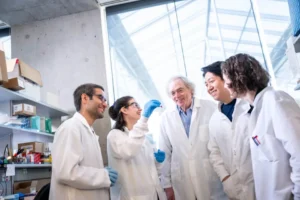
Dr. Pieter Cullis profiled by CIHR for pioneering work in drug delivery and mRNA vaccines
May 29, 2025

LSI PIs Sarah Hedtrich and Arun John Peter named Canada Research Chairs
March 28, 2025

Dr. Emilia Lim Named Dr. Victor Ling Terry Fox New Investigator
February 27, 2025
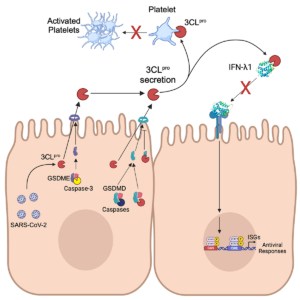
Unconventional secretion of the SARS-CoV-2 main protease opens the door for new extracellular biology in viral infection
February 11, 2025

LSI researchers awarded funding in Fall 2024 CIHR Project Grant competition
January 30, 2025
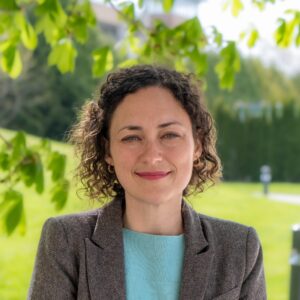
UBC evolutionary ecologist and LSI PI, Dr. Kayla King, awarded Arthur B. McDonald fellowship
November 21, 2024
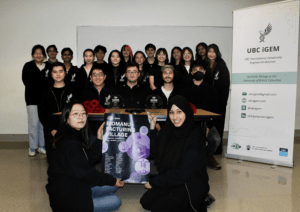
UBC iGEM Team Wins Top Awards for Novel DNA-Based Data Storage Platform
November 13, 2024
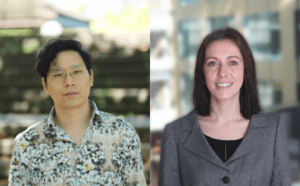
Congratulations to LSI PIs receiving 2024 MSHRBC Scholar Awards!
October 1, 2024